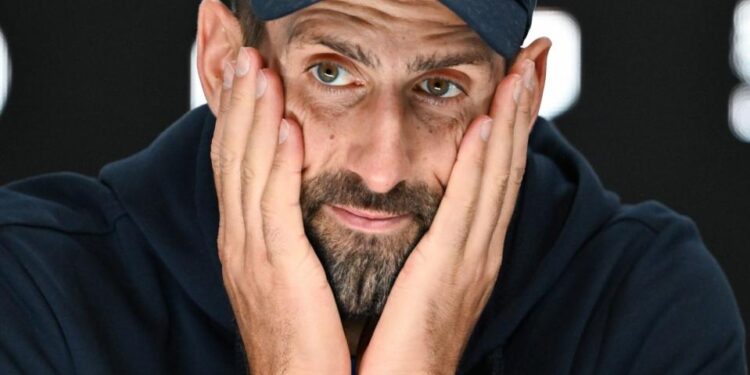
Novak Djokovic claimed Jannik Sinner was shown “favouritism” over his “strange” three-month doping ban as he hit out at “inconsistencies” in cases involving top players.
Urging tennis authorities to consider an overhaul, Djokovic also drew comparison with Iga Swiatek’s allegedly lenient punishment compared with those of lower-ranked players.
World No 1 Sinner agreed to his ban on Saturday, admitting “partial responsibility” for mistakes by his team which led to him twice testing positive for traces of clostebol in March last year.
But Djokovic joins the likes of Tim Henman in raising eyebrows over the length of the suspension, given he was initially facing a potential ban of two years. “There’s a majority of the players that I’ve talked to in the locker room, not just in the last few days, but also last few months, that are not happy with the way this whole process has been handled,” said Djokovic, the 24-time grand-slam winner.


The World Anti-Doping Agency (Wada) had appealed to the Court of Arbitration for Sport (Cas) against Sinner’s initial exoneration by the International Tennis Integrity Agency (ITIA), announced in August. However, in a surprise move, Wada withdrew its appeal and came to an agreement with Sinner to accept a three-month ban.
The outcome comes just three months after five-time grand-slam champion Swiatek accepted a one-month ban after testing positive for the banned heart drug trimetazidine.
“A majority of the players don’t feel that it’s fair. A majority of the players feel like there is favouritism happening,” Djokovic added. “It seems like, it appears that you can almost affect the outcome if you are a top player, if you have access to the top lawyers.”
In contrast, the recently retired Simona Halep, a former world No 1, was handed a four-year ban by the ITIA in 2022 after testing positive for the blood-boosting drug roxadustat.
She argued it was the result of a tainted supplement and successfully appealed to the Court of Arbitration for Sport, which reduced her suspension to nine months.
“Simona Halep and [Britain’s] Tara Moore and some other players that are maybe less known that have been struggling to resolve their cases for years, or have gotten the ban for years,” said Djokovic. “There is so much inconsistencies between the cases… Sinner will have a three-month suspension due to some mistakes and negligence of some members of his team, who are working on the tour. This is also something that I personally and many other players find strange.”
Djokovic, who is returning to action this week at the Qatar Open for the first time since retiring injured from last month’s Australian Open semi-finals, believes a change is needed.
“Right now it’s a ripe time for us to really address the system, because the system and the structure obviously doesn’t work [for] anti-doping, it’s obvious,” he said.
“I hope that in the next period of the near future that the governing bodies are going to come together, of our tours and the tennis ecosystem, and try to find a more effective way to deal with these processes. It’s inconsistent, and it appears to be very unfair.
“If you are going to treat every case individually or independently, which is what’s happening, then there’s no consistency, then there is no transparency, and some cases are transparent, some are not.”
Sinner, who won the Australian Open last month, is suspended from February 9 until May 4, meaning he will be eligible to play in the year’s next grand slam, the French Open, which starts on May 19 at Roland Garros.
“First and foremost I don’t think in any way he has been trying to cheat at any stage, I don’t believe that,” four-time Wimbledon semi-finalist Henman previously said. “However, when I read this statement… it just seems a little bit too convenient.”







